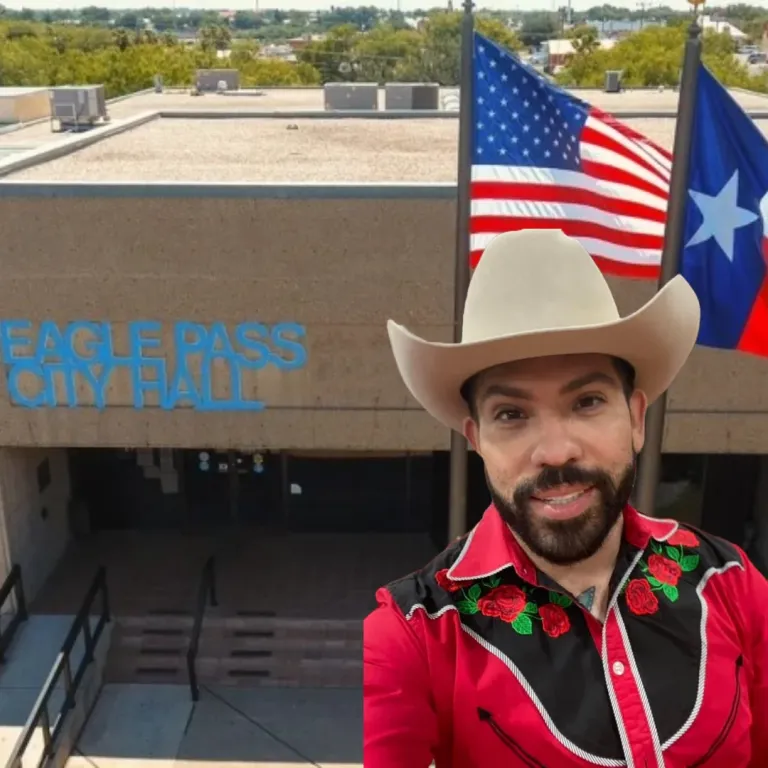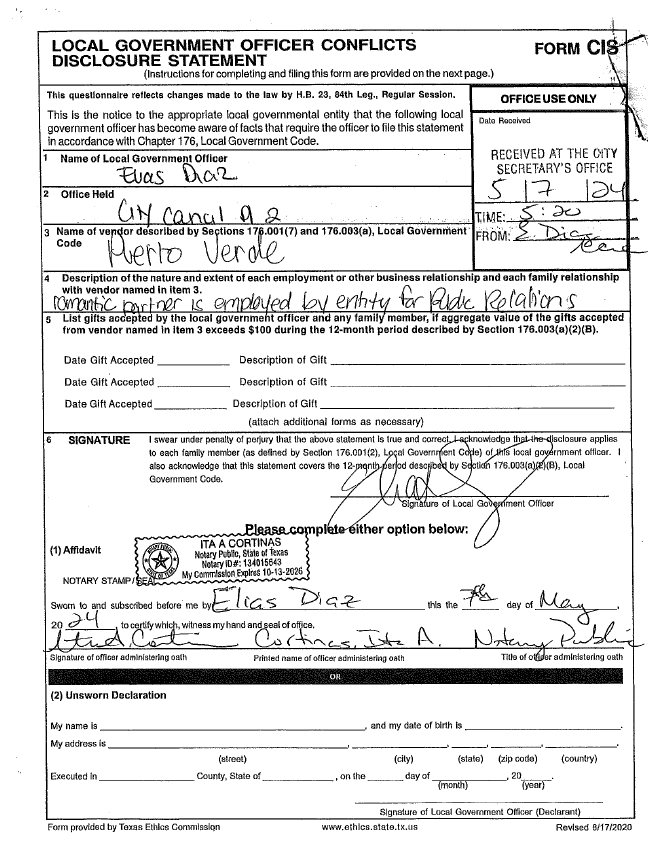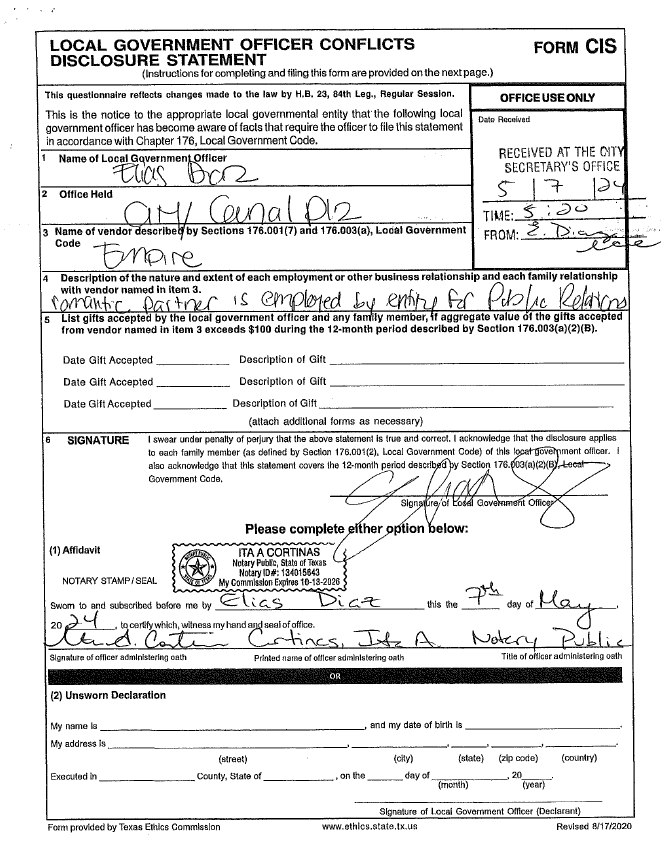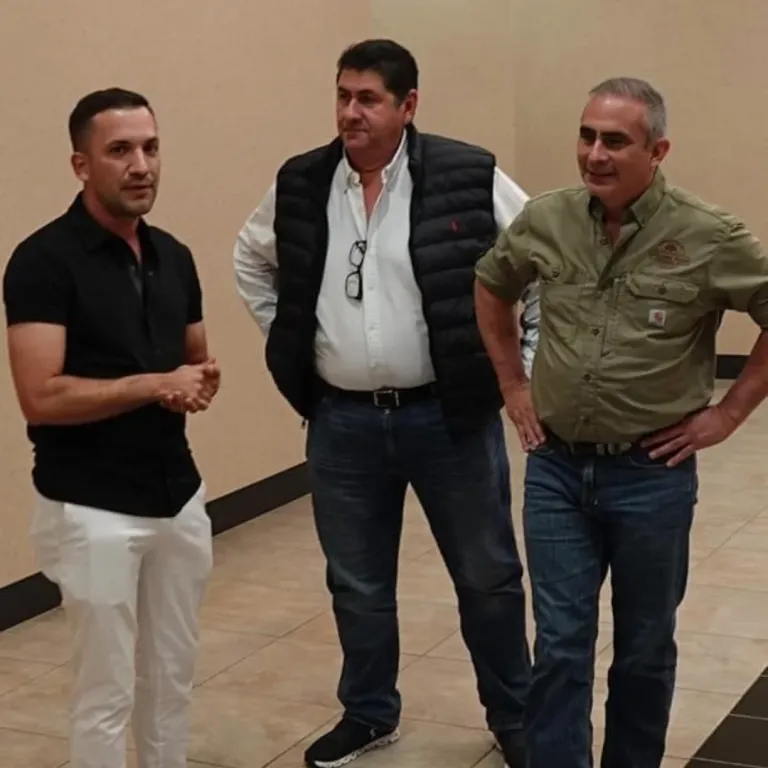Physical Address
304 North Cardinal St.
Dorchester Center, MA 02124
Physical Address
304 North Cardinal St.
Dorchester Center, MA 02124

Eagle Pass City Councilman Elias Diaz is under scrutiny for abstaining from votes on two major development projects due to a personal conflict of interest. His domestic partner, Elishoel Reyes, owns Election Nerds LLC, a political consulting and public relations firm hired by developers behind the Empire Industrial Park and Puerto Verde Global International Bridge projects. The firm’s direct involvement in projects tied to the city has raised ethical questions about transparency and the influence of private business interests on public policy.
READ FULL CONFLICT DISCLOSURE STATEMENT


Diaz has stated that he complied with legal requirements by disclosing his conflict and filing a financial disclosure form in accordance with Texas Local Government Code. When asked about the situation by The Maverick Times News, he confirmed, “I have abstained on two items due to Eli being hired for PR for the project. I did submit a financial disclosure form at the time of the items.” While this statement confirms he followed official procedures, questions remain about whether the relationship between an elected official and a private firm involved in city-related projects creates an uneven playing field or undermines public trust.
Election Nerds LLC was founded in December 2021. Its involvement in major Eagle Pass projects has drawn attention, with some residents and business owners questioning the firm’s growing influence over city policies. The fact that its owner is in a relationship with a sitting councilman has fueled speculation about whether its clients may gain an unfair advantage in securing city contracts or favorable treatment.

The situation has led to increasing demands for transparency. Some community members argue that even if Diaz is following legal procedures by abstaining from votes, his connection to the firm still raises ethical concerns. They want a clearer picture of Election Nerds LLC’s role in city affairs, including details on its contracts, clients, and influence on local decision-making. Others see the issue as an example of how personal relationships can blur the line between public service and private interests.
The controversy has also sparked broader discussions about whether current ethics regulations are sufficient to address conflicts of interest in local government. While Texas law requires officials to disclose financial ties and abstain from votes when conflicts arise, critics argue that these measures do not go far enough to ensure full transparency. The possibility that city projects could be indirectly influenced by private business relationships, even when votes are avoided, remains a concern for many residents.
The case raises important questions about ethical oversight and the standards public officials should be held to when their private connections overlap with city affairs.